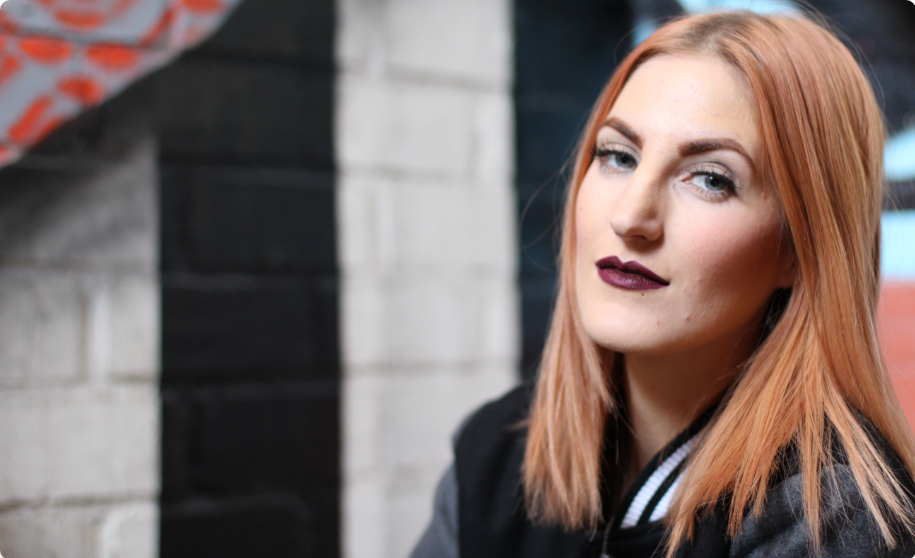
About Pre-Exposure Prophylaxis (PrEP)
PrEP is a form of prevention for HIV-negative people 15 years of age or older.
Get PrEP Now Is PrEP For Me
Key Facts
You may be able to protect yourself by taking PrEP, a once a day pill if you:
Are HIV-negative
Consider yourself at risk for HIV
Have recently been exposed to HIV
Have recently had or been exposed to another sexually transmitted infection (STI)
Are unaware or unsure of your sexual partner’s HIV status
What is PrEP?
PrEP is a form of HIV prevention when taken every day can help protect you from HIV.
Watch The VideoAbout Pre-Exposure Prophylaxis (PrEP)
Pre-Exposure Prophylaxis (PrEP) prevents HIV infection before coming into contact with HIV. PrEP is a once a day pill that is taken every day.
What is Pre-Exposure Prophylaxis (PrEP)?
- It is a complicated word for an easy medication. Let’s break it down:
- Pre = before
- Exposure = coming into contact with HIV
- Prophylaxis = preventing an infection from occurring
- Pre-Exposure prophylaxis (PrEP) can be used by people who are HIV-negative to reduce their risk of becoming infected with HIV if they come in contact with the virus. PrEP is taken once a day.
- Studies have shown PrEP can reduce your risk of getting HIV by 92-99% if taken everyday.
- It is important to know that PrEP is not a cure for HIV and it cannot protect you from pregnancy or other sexually transmitted infections (STI), like gonorrhea, chlamydia or syphilis.
Who should take PrEP?
Generally, PrEP can be prescribed for people who are HIV-negative and have a higher chance of coming into contact with HIV. This includes people that are:
- In an ongoing relationship with an HIV positive partner. Remember, your best protection is to discuss with your partner his or her HIV treatment. Treatment of your partner’s virus to “undetectable” is highly effective at preventing transmission. This is known as treatment as prevention (TasP). If your partner’s viral load is undetectable, they cannot transmit the virus to you through sex (undetectable = untransmittable U=U);
- Gay, same gender loving or bisexual men who have sex with men without a condom or have been diagnosed with a sexually transmitted infection (within the past six months) – even if you don’t consider yourself gay/bisexual, but you are a man who every now and again has sex with other men, PrEP may be right for you;
- Heterosexual man/woman who does not regularly use condoms and does not know the HIV status of one or more partner(s);
- People who use drugs;
- For heterosexual couples who are trying to have a baby, PrEP is an option to protect the HIV-negative partner while trying to become pregnant.
Is taking PrEP difficult?
No. Taking PrEP can be very easy, but you will have some things to remember while using PrEP, which includes:
- Taking one of the currently approved pills – you may be able to take Truvada, TEVA (generic for Truvada) or Descovy;
- Getting regular testing for HIV and STIs (every 3 months); and
- Going to regular visits (every 3 months) with your healthcare provider – going to see a doctor, nurse practitioner or physician assistant to get your labs checked and refill your medication.
Does PrEP protect against other sexually transmitted infections (STIs) or blood-to-blood contact diseases, like Hepatitis?
No, PrEP only decreases the risk of getting HIV, it will not protect you against other STIs. Even while on PrEP, you should still use condoms to protect yourself.
If you currently inject drugs, using clean needles that haven’t been used by anyone else will help reduce your risk of getting HIV or other blood-to-blood contact diseases like hepatitis. Baltimore City Health Department sponsors a Free Clean Needle Exchange.
How well does PrEP work at preventing HIV?
PrEP can be 92%–99% successful in decreasing the risk of getting HIV, if taken every day without missing any pills.
If I’m using PrEP, do I still have to use condoms?
PrEP can be 92%–99% successful in decreasing the risk of getting HIV, if taken every day without missing any pills. Condoms can also help prevent HIV when used correctly, all the time. You have to figure out what works best for you, and how comfortable you are about being protected; again PrEP is only 92-99% successful if you take the medication every day. Some people will keep using condoms while on PrEP and others will decide to stop using them. If you are already using condoms all the time, and doing so makes you feel comfortable and protected, then keep doing what feels right to you. Many people struggle with using condoms all the time or prefer sex without condoms. You have to decide for yourself what level of protection feels right and what gives you the peace of mind to lead a sexually fulfilling life. Remember, PrEP does not protect against other STIs like gonorrhea, chlamydia, syphilis, or herpes. It also does not prevent pregnancy.
What are the side effects of taking PrEP?
The medications currently used for PrEP only have a few mild side effects. All of the medications have similar side effects. During the first 2-3 weeks that Truvada or TEVA (generic Truvada) is started, some people have nausea, fatigue and dizziness. Some people report an increase in gas. During the first 2-3 weeks that Descovy is started, some people have nausea, diarrhea, headaches and fatigue. These side effects should go away after those first 2-3 weeks once your body becomes used to the medication. The better you are at remembering to take your pill every day, without missing doses, the faster the side effects will go away.
How much does PrEP cost?
There are many options to cover the costs of Truvada, TEVA and Descovy, this includes the majority of insurance plans, including plans obtained through Maryland Healthcare Exchange.
- With no healthcare insurance, the drugs can cost between $8,000 and $14,000 per year. You may be eligible for some assistance to cover the cost of the medication through assistance programs like Ready, Set, PrEP and the Gilead Assistance Program.
- You will also have to think about the cost of following up with your healthcare provider for blood work at least four times per year. Depending on your out of pocket deductible (the amount you are required to pay), the costs of your visits may vary widely. It is important to discuss your options for health coverage with your healthcare team. PrEP has been approved by the US Preventative Services Task Force (USPSTF) and recommends that providers offer PrEP to their patients, which means if you have private insurance, the insurance company needs to cover PrEP.
- Check with your insurance provider to see if PrEP is covered.
- There is also a Gilead co-pay assistance card that you may be able to use to help cover the cost of your medication co-pay.
What are the long-term effects of taking PrEP?
There is no current research that shows the long-term effects of using Truvada for PrEP, but this medication has been used for many years for treatment of HIV. Truvada may decrease kidney health and your bone density. If you have any side effects while taking Truvada, it is important to tell your healthcare provider. Your provider will monitor your kidney and, if needed, your bone health during your treatment.